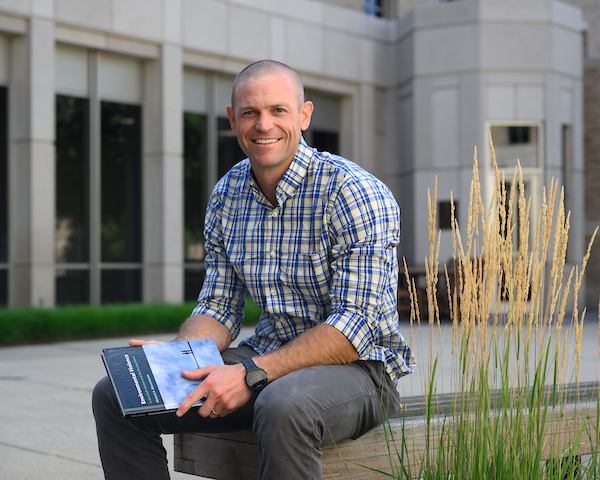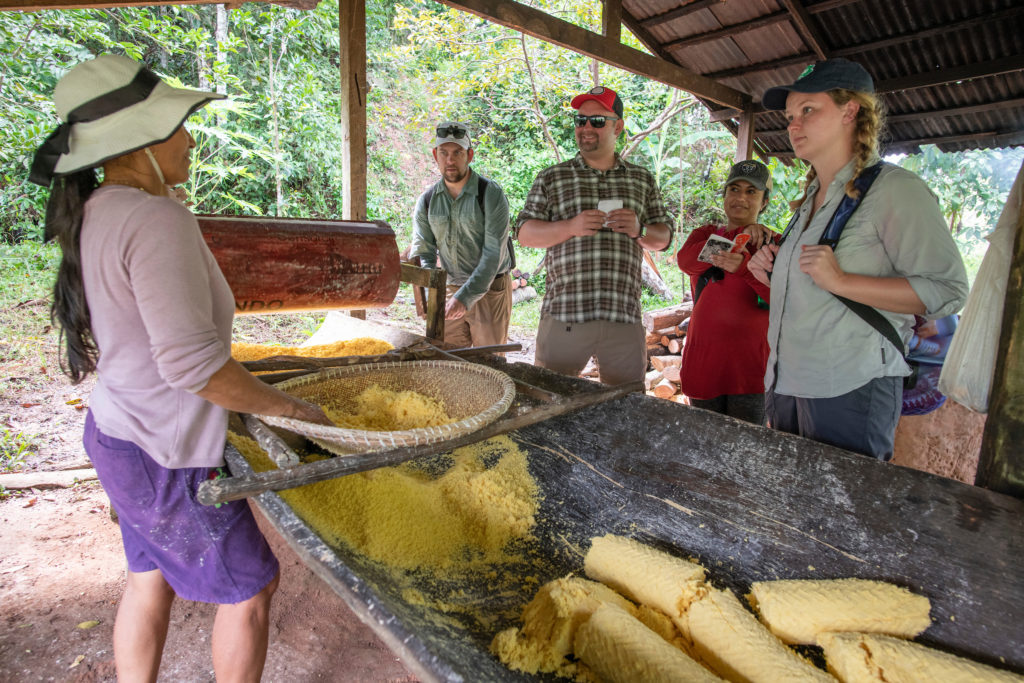 For former Kellogg Doctoral Affiliate Richard “Drew” Marcantonio, peacebuilding and business go hand in hand: “I am a believer in enterprise as an essential tool to resolving the most pressing challenges faced by society today.”
For former Kellogg Doctoral Affiliate Richard “Drew” Marcantonio, peacebuilding and business go hand in hand: “I am a believer in enterprise as an essential tool to resolving the most pressing challenges faced by society today.”
Marcantonio joined the Mendoza College of Business as a new assistant teaching professor in the Department of Management & Organization after graduating from Notre Dame’s Peace Studies PhD program. His degree from the Keough School of Global Affairs and his expertise in environmental management led Marcantonio to his new role, where he will teach students within the Meyer Business on the Frontlines program.
Frontlines is one of Mendoza’s most prominent experiential learning programs. Offered to Notre Dame MBA students, Frontlines seeks to imagine new solutions to some of the world’s most challenging problems and to become a forum for all organizations committed to improvement – no matter how diverse – to work together to build stable and prosperous communities.
But where does Marcantonio and his expertise fit in?
“Business on the Frontlines is primarily focused on restoring the dignity of work and livelihoods in the most challenging areas of the world: this is peacebuilding,” he said. “The frameworks and the field and professional peacebuilding experience that I bring with me, combined with my work in environmental management, bolster and expand the expertise already in the Frontlines team.”
Marcantonio will teach Environmental Management and Environmental Peacebuilding. The course will focus on the drivers of environmental violence as the outcome of failed or poor environmental management and how this has created the need for environmental peacebuilding.
In July, Marcantonio published a book on this topic, Environmental Violence, with Cambridge Press. The book aims to “reconceptualize” or think about in a new way how the pollution that humans (although not equally) produce every day causes direct harm to human health. He spent time with people from all different backgrounds and socioeconomic positions in an effort to create a shared understanding between behaviors and the resulting suffering of others.
 “Through bench science – I literally spent hundreds of hours in a lab – to conversations in some of the most affected communities, I worked to generate connected understandings of how these pollutants are produced, who they are affecting and what the ultimate impacts are of this process and persistent cycle of environmental violence,” said Marcantonio. “The book illuminates the detrimental realities of our everyday life choices that may not always be visible and calls us to reflect on these realities.”
“Through bench science – I literally spent hundreds of hours in a lab – to conversations in some of the most affected communities, I worked to generate connected understandings of how these pollutants are produced, who they are affecting and what the ultimate impacts are of this process and persistent cycle of environmental violence,” said Marcantonio. “The book illuminates the detrimental realities of our everyday life choices that may not always be visible and calls us to reflect on these realities.”
As part of Marcantonio’s role with Frontlines, he will be building a new initiative of research, practice and partnership around the topic of Environment, Enterprise, and Peacebuilding. But more than that, he will be contribute to Mendoza’s motto to “Grow the Good in Business.”
“The fronts that I am working on and am committed to – human and planetary flourishing – are the essential place to connect the aspiration of growing the good with the practices most needed to heal humanity and our planet,” said Marcantonio.





